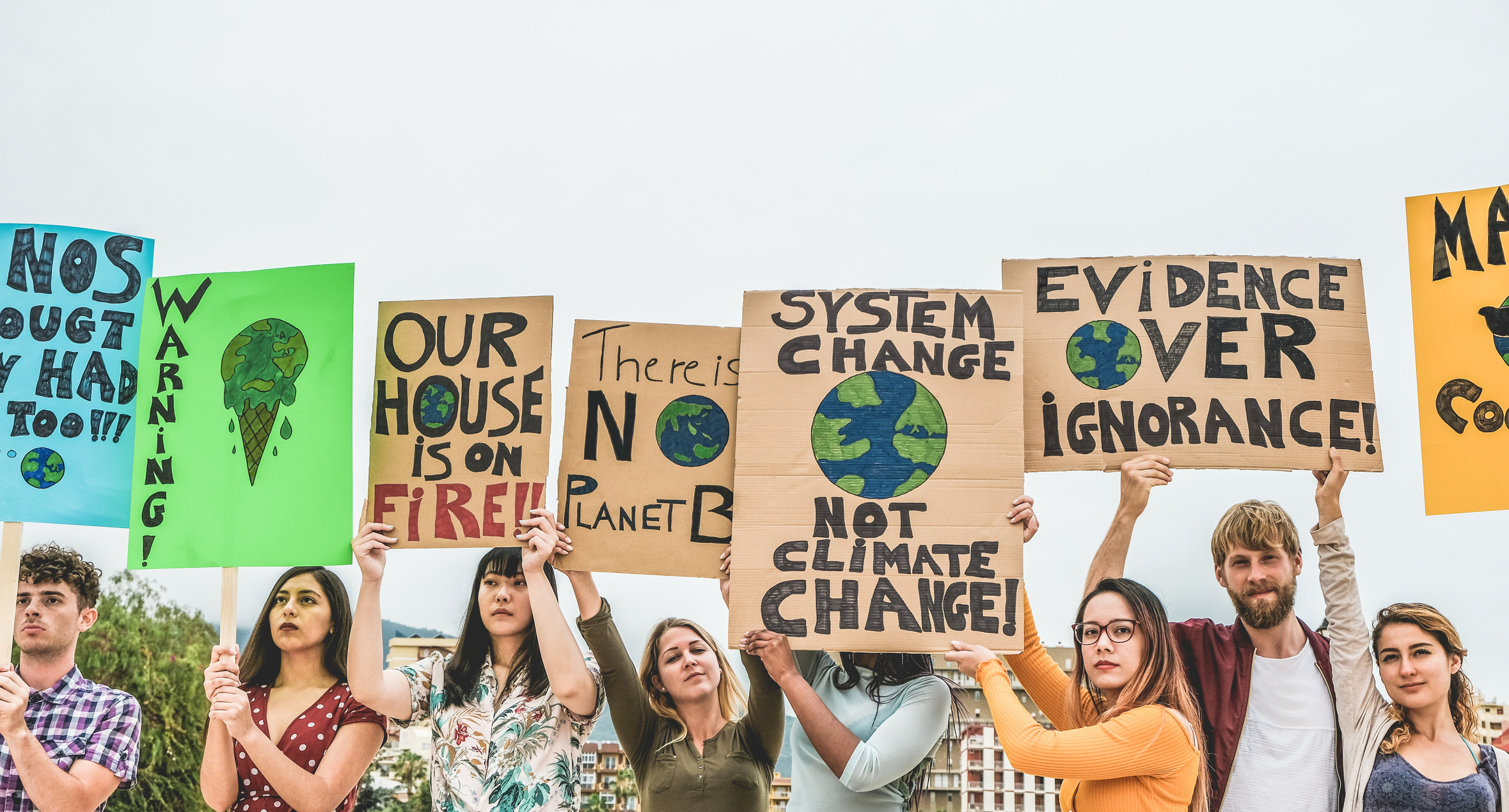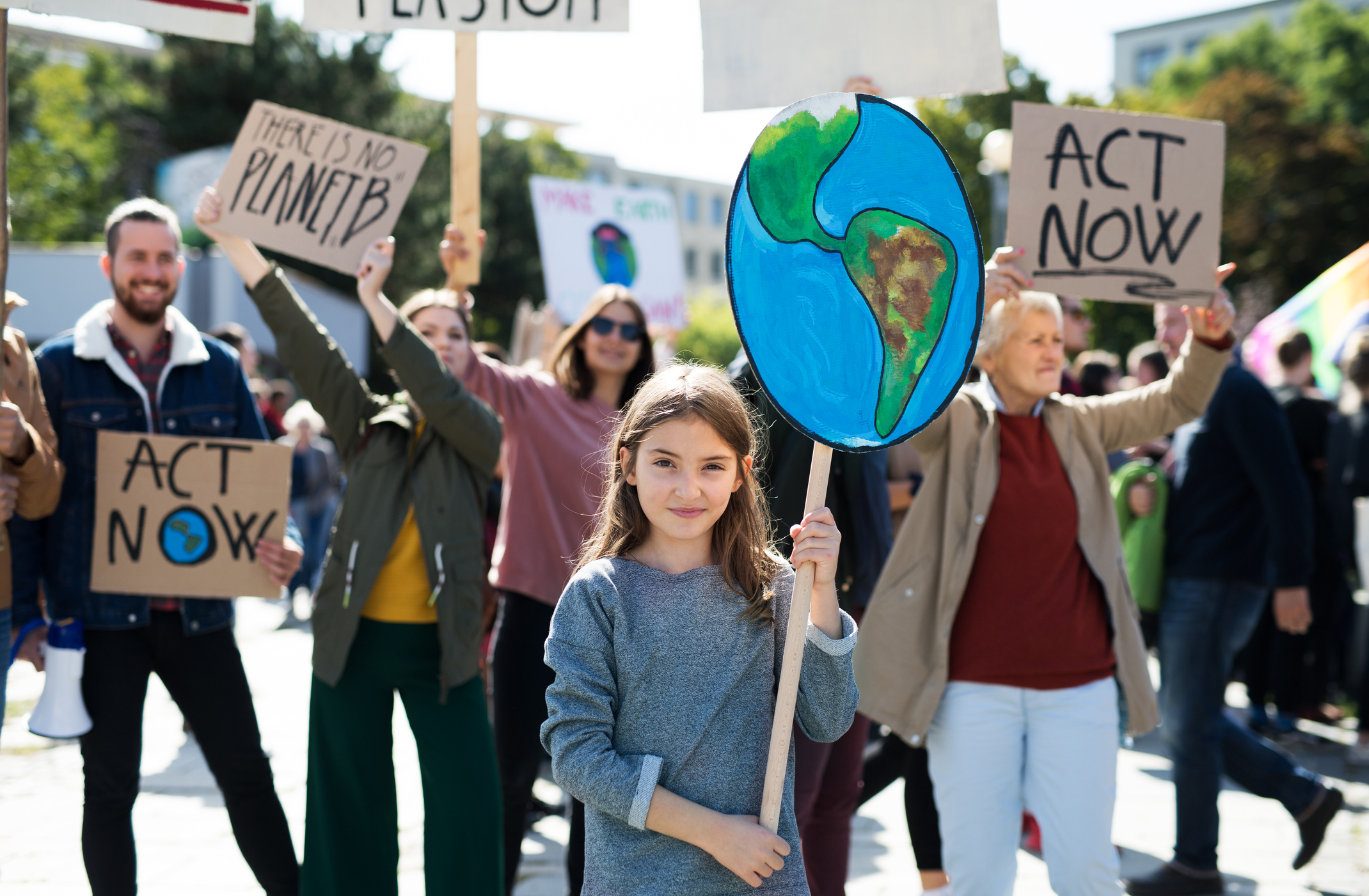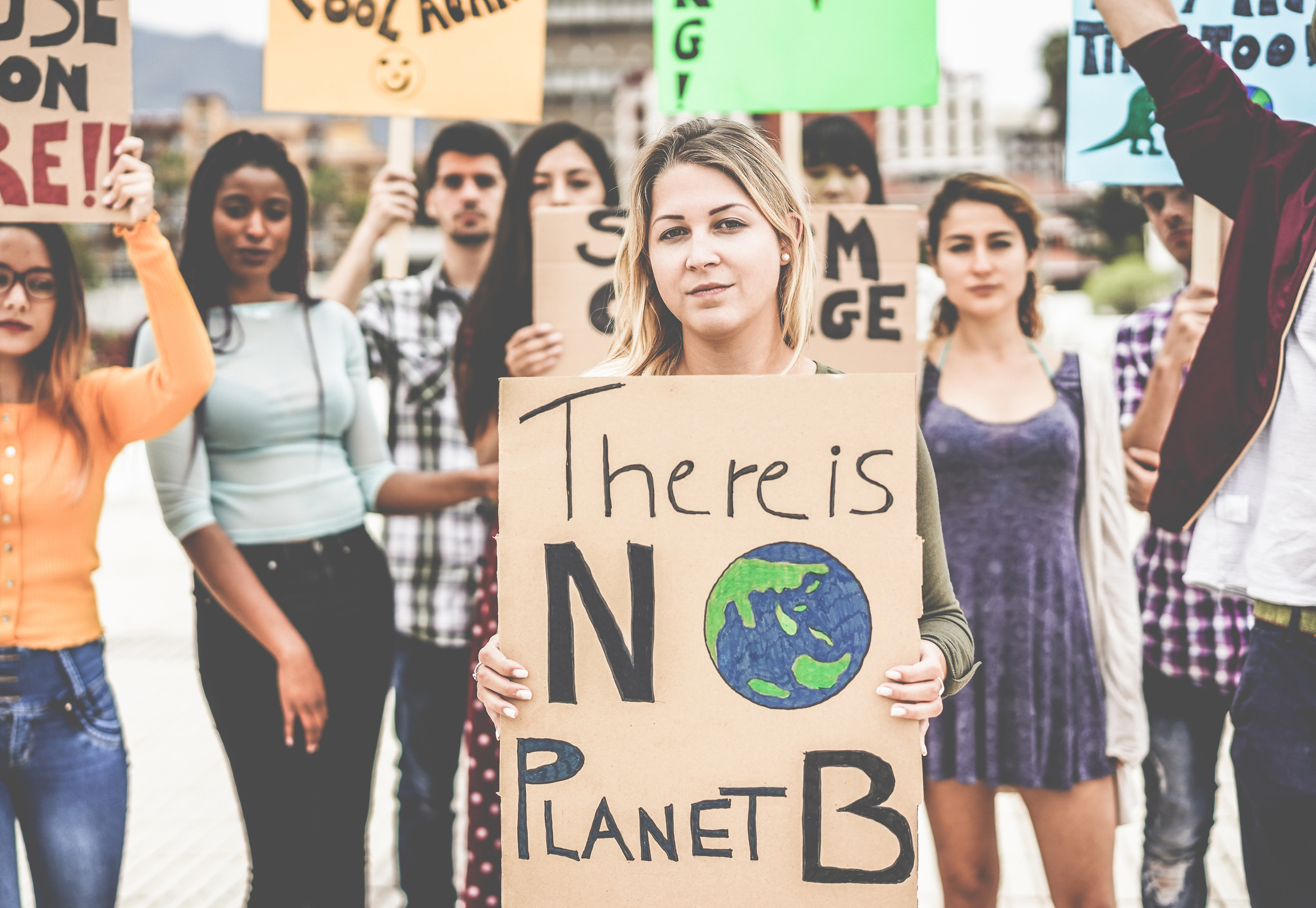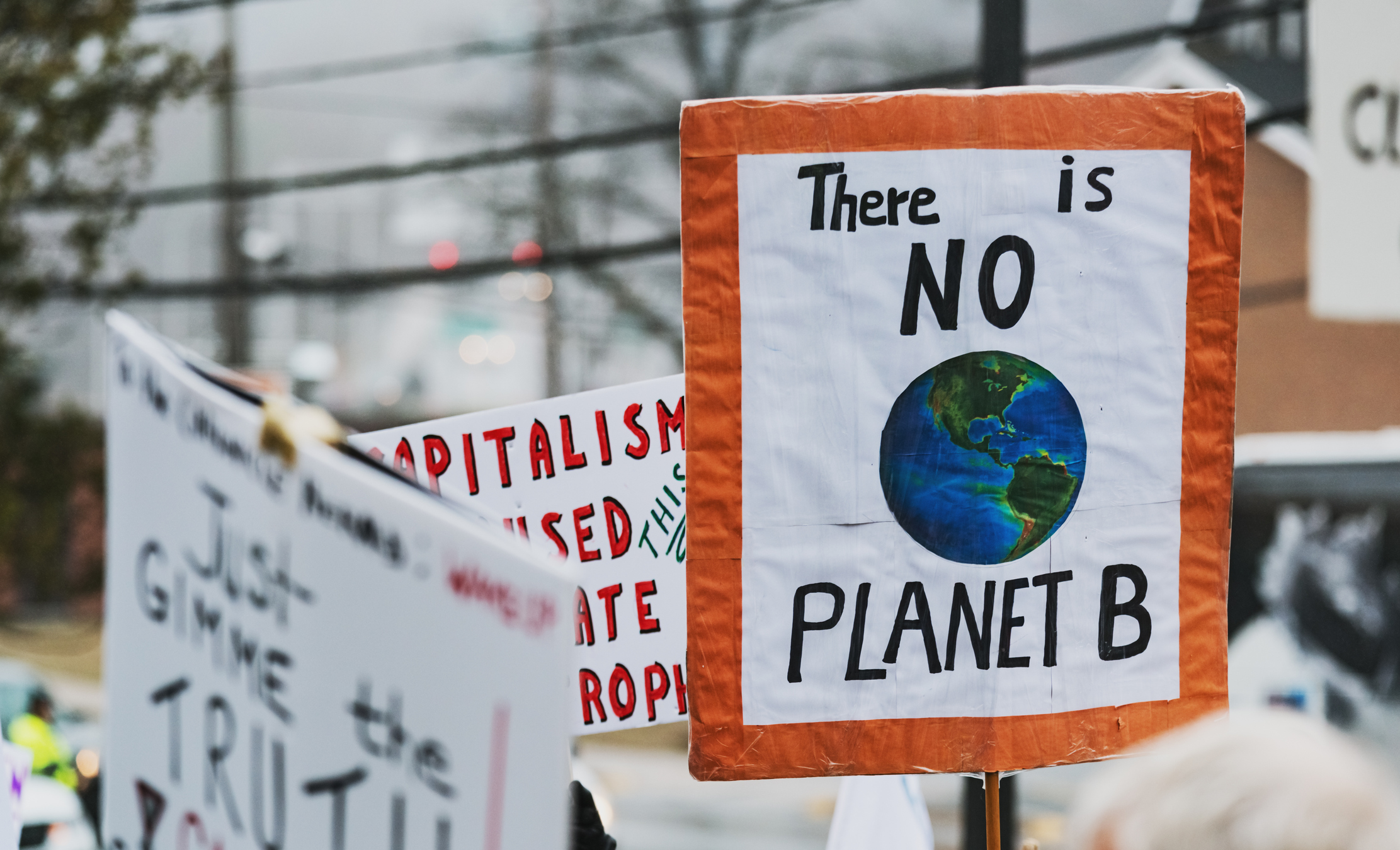By Emily Reuman, BCPP Technology & Communications Manager
Top 4 ways climate change may increase your risk of breast cancer:
- Hotter temps make it harder for our bodies to cleanse by breaking down and getting rid of toxic chemicals.
- Hotter temps make cancer chemicals like pesticides more harmful to our bodies.
- Severe weather events can pollute the water we drink.
- Hotter temps mean more volatile toxic chemical pollution in the air we breathe.

“System change- not climate change!”
What comes with a hotter world? Greater toxicity. It’s a big deal because 90% of breast cancer cases are likely linked to factors including environmental exposures to toxic chemicals and radiation. Only around 10% of breast cancer cases can be attributed to genetics.
While you’re letting that sink in, let’s get to the bottom of what ‘greater toxicity’ means. It comes in multiple forms. First off, some chemicals of concern for breast cancer, like pesticides, are literally more harmful to our health at higher temperatures.[i]

Breast cancer risks rise with greater toxicity from harmful chemicals.
And you’ve probably heard about severe weather events like storms, hurricanes, and floods. Well, increased storm, flooding, and water runoff, from a rise in the number and severity of weather events, are projected to lead to chemical contamination of water sources.[ii] Think, cancer-causing pesticides from lawns, gardens, and crops, washing into your streams, watersheds, and water reservoirs.
In those flooding events, hazardous chemicals are released such as formaldehyde, a carcinogen, from manufactured wood products and plasticizing chemicals from flooring and other furniture[iii].
Granted, climate change is projected to shift regional precipitation patterns. Some areas are more likely to see more precipitation, like rain and storms, while others will see less. Unfortunately, less precipitation carries other toxic risks.
Areas that see less rainfall may experience a higher level of airborne (volatile) persistent organic pollutants (POPs), like some pesticides linked to breast cancer, in the atmosphere.[iv] POPs are chemicals that do not break down in the environment over time. Instead, they stick around and can cause illness.

“There is no planet B.”
Less precipitation is also expected to increase air pollution in urban areas, which means greater exposure to harmful chemicals linked to breast cancer.
And while hotter temperatures intensify the toxicity of chemicals like air pollutants and pesticides, they also weaken our bodies’ ability to cope.[v] Hotter temperatures make it harder for our bodies to break down and get rid of toxic chemicals (i.e. detoxify) by weakening our natural metabolism and excretion processes.
According to a study on global climate change published in the journal of Environmental Toxicology and Chemistry[vi]:
Environmental variables altered by global climate chance (GCC), like temperature, precipitation, salinity, and pH, can influence the toxicokinetics of chemical absorption, distribution, metabolism, and excretion as well as toxicodynamic interactions between chemicals and target molecules. In addition, GCC challenges processes critical for coping with the external environment (water balance, thermoregulation, nutrition, and the immune, endocrine, and neurological systems), leaving organisms sensitive to even slight perturbations by chemicals when pushed to the limits of their physiological tolerance range.
In other words, rising temperatures make us more sensitive to chemical stressors like toxic chemicals. Our bodies’ natural systems for keeping us healthy are less able to cope, which makes us more susceptible to breast cancer and other diseases.

All in all, climate change means an increased risk of breast cancer for all of us, especially people in places that are hard hit by extreme weather events facing chemical contamination and air pollution. It’s easy to hold climate change at arm’s reach, as a distant environmental problem, causing flooding in places far from home and the extinction of rare species. But it’s more than that—it’s a global health problem that’s about to get worse.
Already breast cancer affects 1 in 8 women. Those are our sisters, mothers, daughters, friends, families, and communities. It’s time that the U.S. stepped up and addressed climate change to prevent breast cancer before it starts.
[i] https://setac.onlinelibrary.wiley.com/doi/pdf/10.1002/etc.2043
[ii] https://www.sciencedirect.com/science/article/pii/S0160412009000543
[iii] https://www.atsdr.cdc.gov/formaldehyde/home/index.html
[iv] https://www.sciencedirect.com/science/article/pii/S0160412009000543
[v] https://www.greenbiz.com/article/why-caring-about-climate-change-means-caring-about-chemicals-concern
[vi] https://setac.onlinelibrary.wiley.com/doi/pdf/10.1002/etc.2043
